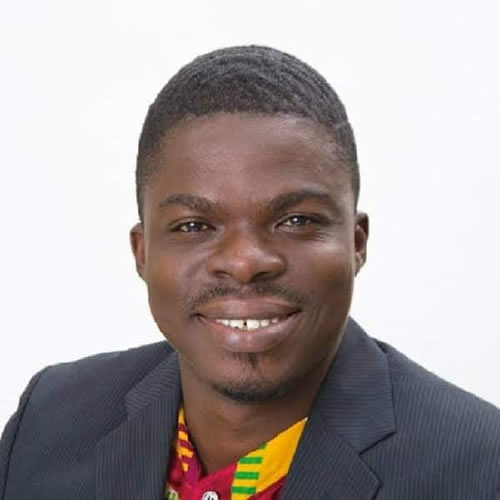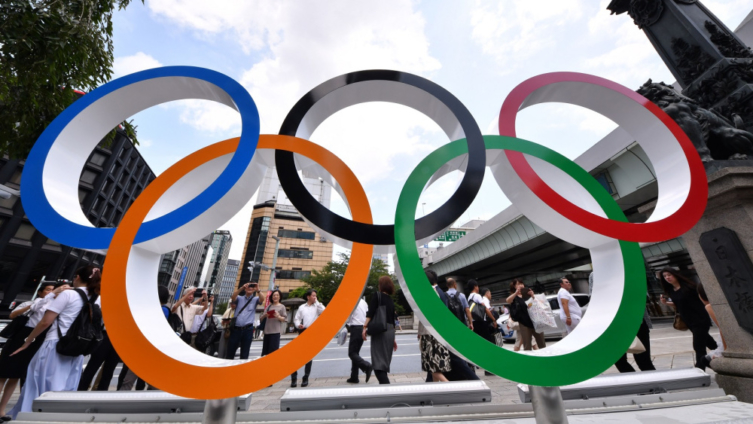The Japanese Government and the International Olympic Committee (IOC), in a joint decision officially agreed to the postponement of the Tokyo 2020 Summer Olympic and Paralympic Games to the summer of 2021.
Subsequently, it was announced to the global sports community by the President of the IOC, Thomas Bach that the decision to cancel staging the games this year was due to the novel coronavirus having been declared a pandemic by the World Health Organization (WHO).
In support of this, Andrew Parson, President of the International Paralympic Committee (IPC) described the decision as logically sound adding that, “the health and wellbeing of human life must always be our number one priority and staging a sporting event of any kind during this pandemic is simply not possible.”
On the backdrop of this, the IPC, which is the sport governing body for National Paralympic Committees went further to cancel if not all, but most of its sanctioned competitions lined up this year.
As tough as these decisions were for the IPC, the decision was taken in the interest of the safety, health, and well-being of Para-athletes and all those involved in the Paralympic Movement such as the National Paralympic Committee of Ghana.
Under the circumstance and even before the announcement by the IOC and IPC, some National Olympic and Paralympic Committees like the Canada and Australia had communicated their intention to boycott the games if it was not extended to next year.
But while sport may not sound like the most important thing at the moment in such unprecedented times, other than saving humanity, it remains a fact that Ghana Para-athletes must find a way to continue with preparations, train, keep fit, stay healthy and above all protect themselves to ‘rub shoulders’ with the likes of Canada’s Lakatos Brent (T53 100m), Finnish Tahti Leo Pekka (T54 100M) and United States star Tatyana McFadden (T54 400M).
These events and sport classes have always been our strong areas in Para-sport till date. However, in the wake of COVID-19, the challenges that befall our Para-athletes while waiting for the games, maybe beyond what the challenges envisaged currently by our three national sports outfits (Ministry of Youth and Sports, National Sports Authority and Ghana Olympic/Paralympic Committee). Perhaps, the big question is, have these outfits even probe the Para-athletes’ challenges from an ethical perspective?
Before, delving into the challenges, firstly, let me briefly paint our attitude towards disability sport. Quite recently, some media houses have promoted discussions focused on how to deal with COVID-19 related problems in our sports but unsurprisingly, absent was the voice of the disability sport movement.
Even before COVID-19, our Para-athletes athletes have not had the best of sporting support in terms of infrastructure, welfare and insurance, funds, athlete development, access to equipment, and technical know-how.
Though one may argue that the stakes are equally the same with their able-bodied counterparts, one can attest that the challenges of the general disabled person in Ghana are somewhat awful and this is evident whiles they strive to participate in sport at all levels. For instance, on April 29, 2020, myjoyonline.com reported that about 25 members of the national Paralympic Team had been camped in a single makeshift wooden structure as they prepare for the Tokyo 2020 games risking their lives to the ‘deadly’ coronavirus. This is ethically unacceptable!
So, where are am I going with this? The Tokyo 2020 games being postponed may be a curse in disguise other than a blessing in disguise for our Para-athletes considering the nation’s unconcern attitude towards elite disability sport. Sadly, the present COVID-19 pandemic is one that pushes our Para-athletes to work remotely under already remote existing sport conditions.
For instance, in our country, internet service is so unreliable, poor but expensive. This means our Para-athletes are currently at a higher possibility of missing out on many virtual competitions that have sprung up during these abnormal times, because, either our Para-athletes will not afford the high internet associated with virtual competitions or cannot rely on the weak internet speed from the service providers in such situations.
With my experience in global sport movements, it will not be ambitious to forecast that very soon these virtual competitions could be considered as an optional way for international game qualifications. This will avoid grouping athletes in one place which in turn limits the spread of the coronavirus. How will our Para- athletes cope?
What’s more, currently our Para-athletes travel from their homes on public transport to access stadia and other sports facilities to train.
On such journeys, they will be exposed to public contact which inadvertently increases the rate of getting infected with the coronavirus. On this note it is just advisable that Para-athletes limit their movements as much as possible.
The best is to train at home while fully maximizing the opportunities around them. Given this, their immediate space (homes) will require transformation to an effective training gym. However, this may rather require a very complex and complicated set of equipment, but as usual these are beyond the means of our Para-athletes.
The least price of an aerodynamic wheelchair or J-leg cheetah prosthetics used by disabled athletes’ is between USD 7,000 to USD 10,000 not to mention the additional cost of virtual technology.
In countries, like Australia and New Zealand, National Olympic and Paralympic Committees with assistance from governments have helped in setting up virtual gyms for their high-performance Para-athletes, unfortunately, the same cannot be said for Para-athletes because we choose to keep them in a make-shift wooden structure.
Furthermore, checks indicate that many of our Para-athletes are not covered by any form of insurance and this is ethically worrying. I am not interested to lay blames at the doorstep of our national sport outfits at this moment.
Yet, it is morally disturbing that in such abnormal times our Para-athletes are at the mercy of the virus while preparing for Tokyo games. Indeed, one would have imagined that the health of our Para-athletes will be safeguarded and protected, considering their already ‘unpleasant’ conditions will be further compounded if they get infected with coronavirus.
This could potentially cause a life-long health problem that will render them unfit for Tokyo 2020 games and future games.
The welfare of disabled people has always been obnoxious to say the least. On the backdrop of this, it is no surprise that their condition has been made a lot worse in these abnormal times. But let me acknowledge that the whiles government has rolled out a national protocol to protect the health and well-being of each Ghanaian citizen, these protocols have not yielded much results as our affected cases keep spiraling. At the time of writing this article, it is unclear what interventions have been put in place by the government to fully protect or improve the well-being of disabled people.
This is worrying and for the specificity of sport, it is even more disturbing that till now there is no specific document or announcement from any of our national sport outfits detailing how our athletes (including Para-athletes) can return safely to training, especially in terms of access and usage of sport facilities and, yet stay safe from the COVID-19.
Again, our Para-athletes, particularly, the visually impaired and deaf having nothing to work with even if they wish to return/continue training. The point here is a “one size fits all” national COVID-19 protocol may be ethically problematic for all athletes preparing for Tokyo 2020 especially the Para-athletes.
Well, it is undeniable that globally COVID-19 has created some openings for athletes and Para-athletes to improve their knowledge, to engage in sports courses and programs through webinars organized by state sports organizations and federations, but we are yet to fully take advantage of these innovations.
Sadly, very little has been done in this regard and this is the true reflection of our current attitude towards sports in general amid COVID-19 ahead of Tokyo 2020.
I am tempted to ‘press the panic button’ because COVID-19 has come to stay with us for a long time and countries have proactively implemented policies and systems that have otherwise maintain and improve the standard of their athletes ahead of impending games during these abnormal times.
In conclusion, while these ethical challenges were viewed from a Paralympic perspective, we will admit that these challenges are equally the same for our Olympic athletes.
Given this, it calls for us to rethink our present national “preparation framework” for the Tokyo 2020 Games, otherwise we are on the verge of again adding up to the numbers like always or absent at the games.

The article was written by Francis Asare, a Research Scholar at the School of Health, Division of Health, Engineering and Computer Science, University of Waikato, New Zealand.
Email: francis.asare@zoho.com
Latest Stories
-
Energy Minister demands forensic audit over missing ECG containers
13 seconds -
Joseph Paintsil unveils debut EP ‘Emergency’, set for April 4
15 minutes -
Petition to remove CJ is not politically motivated – Adawuda
26 minutes -
‘All that glitters is not gold’ – initial comments on Ghana’s Gold Board
59 minutes -
3 in 4 voters rate Dampare’s performance very high during 2024 election – Mussa Danquah
1 hour -
Weija-Gbawe MP urges urgent action on flooding in Accra
1 hour -
I was surprised to have started against Madagascar – Jerome Opoku
2 hours -
It would’ve been helpful to receive initial comments from CJ on her removal – Dr Osae Kwapong
2 hours -
Adhering to transparency in CJ removal case enhances trust in judiciary – Dr Osae Kwapong
2 hours -
BoG surprises with first rate hike since July 2023
3 hours -
Marina Mall to host grand Eid-ul-Fitr celebration on March 31
3 hours -
It is frightening to think the CJ can be suspended – Nana Baffour Awuah
3 hours -
Presidency erred in publicising petition on CJ removal – NPP MP
3 hours -
CJ’s removal brouhaha: The initial error came from President – Baffour Awuah
3 hours -
President’s role in appointing committee in petition against CJ must be reviewed – Ayikoi Otoo
4 hours

